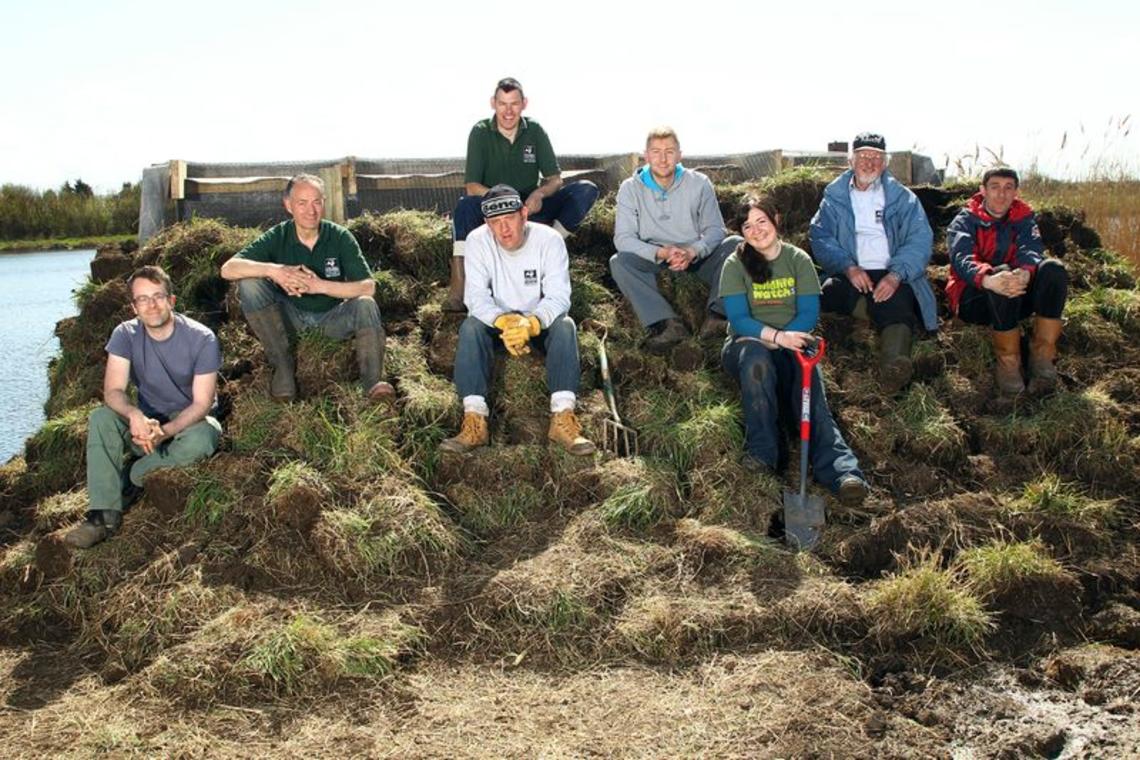Reserve Volunteers
The Reserve Volunteers meet every Monday at 10:00 to carry out practical conservation work at our reserves across the Tees Valley.
What You'll Do:
Conservation tasks are varied in response to the habitat management required on each site but often include the following:
- Strimming and grass-cutting
- Using small hand tools
- Litter-picking
- Planting trees
- Laying paths
- Clearing scrubland and meadows
- Hedge-laying
- Erecting fences
- Felling trees and pruning
The tasks involved can be spread over one day or several months depending on demand for the work being done and the number of people on each volunteer group to do it! Some tasks involve new projects and others are more about site maintenance, but all are for the benefit of the wildlife as well as improving access and enjoyment for visitors. Volunteers are supported fully in all tasks by the Reserves team.
Why You'll Love It:
As well as the chance to share and indulge in your love of wildlife and the countryside through volunteering, this type of work can offer you the following:
A sense of occupation around your academic studies, keeping your body and mind active while being a valued team member. It’s also a place to develop skills in preparation for paid work, and even gain recognised qualifications.
Greater confidence and independence by undertaking challenges and using your initiative.
A sense of satisfaction and achievement at successfully completing the various challenges we can offer you.
The opportunity to make new friends, learn from others, and make contacts in our partner organisations.
Working in nature is also proven to lower stress levels and improve physical and mental health
What You'll Learn:
Practical Skills:
Use of hand tools and equipment (e.g. loppers, pruning saws, scythes, etc.)
Habitat management and site maintenance techniques (e.g. tree planting, coppicing, invasive species control, Path laying, meadow management)
Safe working practices, including risk assessment and tool safety
Ecological Knowledge
Understanding local ecosystems and biodiversity
Basic species identification (plants, birds, insects, etc.)
The impact of human activity on habitats and species
The role and goals of conservation work in addressing environmental challenges
Teamwork & Communication
Working effectively in a team setting
Communicating with staff, other volunteers, and possibly the public
Taking and giving feedback in a supportive environment
Professional & Personal Development
Insight into careers in the environmental or conservation sector
Time management and organisation in outdoor settings
Resilience and adaptability in challenging weather or physical conditions
Increased confidence and sense of purpose through meaningful contribution
Values & Perspective
Understanding the value of long-term, landscape-scale conservation
Awareness of the importance of community involvement in conservation
A deeper connection to nature and sense of environmental stewardship
What We're Looking For:
Reserve volunteers do not need to have any prior knowledge or experience in outdoor conservation as all training will be provided. All volunteers would be expected to have a basic fitness that will allow them to take part in walks on uneven ground, carrying tools and moderate aerobic activity e.g. equivalent to general garden maintenance.
Because most tasks on our reserves involve group work we ask that volunteers are accepting of others’ differences and see volunteering as an opportunity to develop new relationships as well as learn individual skills. A good sense of humour is always welcome too!

